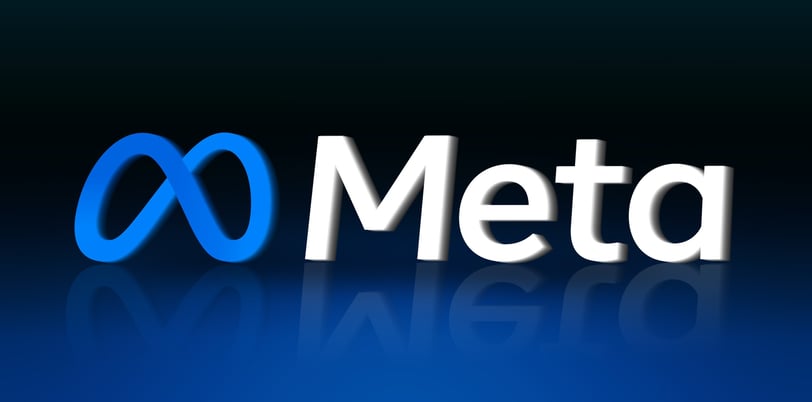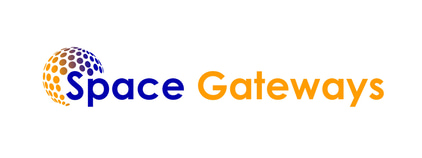Zuckerberg's Call for U.S. Intervention Against EU Antitrust Fines
In recent months, the relationship between European regulators and American technology companies has become increasingly contentious, particularly concerning antitrust fines imposed by the European Union (EU) on prominent U.S. firms.
1/11/20254 min read


Introduction to Zuckerberg's Concerns
In recent months, the relationship between European regulators and American technology companies has become increasingly contentious, particularly concerning antitrust fines imposed by the European Union (EU) on prominent U.S. firms. Mark Zuckerberg, the co-founder and CEO of Meta Platforms, has voiced his apprehensions regarding these regulatory measures, which he perceives as detrimental not only to his company but to the broader U.S. tech industry. His remarks come amid escalating tensions that underline a significant cultural and economic divide between the EU's regulatory environment and the more laissez-faire approach traditionally observed in the United States.
Zuckerberg's concerns center on the implications of antitrust actions for competition and innovation within the U.S. tech sector. He argues that the penalties levied by EU authorities may hinder American companies' ability to compete globally, as they divert valuable resources away from research and development. This diversion could stifle innovation, a core pillar that has historically driven the growth and success of U.S. tech giants. The fear is that severe penalties may not only impact individual firms but the entire landscape of the tech industry, hampering its vital contributions to the economy.
The debate surrounding these fines raises significant questions about the role of government intervention. Many industry leaders, including Zuckerberg, are calling for a more proactive stance from the U.S. government to support its homegrown tech firms against what they view as overreach by European regulatory bodies. This call to action reflects a growing sentiment that such fines could undermine economic competitiveness and hurt the interests of U.S. businesses operating on a global scale. As this situation continues to evolve, it is clear that the interplay between U.S. technology companies and European regulators will have lasting repercussions for both economies.
Comparing Antitrust Fines to Tariffs
Mark Zuckerberg's recent remarks regarding the European Union's antitrust fines have sparked considerable interest, particularly his analogy likening these penalties to tariffs. Tariffs, which are essentially taxes imposed on imported goods, aim to protect domestic industries from foreign competition by making their products more expensive compared to local offerings. In a similar vein, antitrust fines serve as punitive measures against companies that are perceived to exploit market power, often disadvantaging competitors. This comparison raises pertinent questions about the impact of such regulatory actions on American businesses like Meta and the international trade landscape overall.
When evaluating the effects of antitrust fines, one can argue that they operate similarly to tariffs by creating barriers to competitive equality. Like tariffs, which distort market prices and affect consumer choice, antitrust penalties can inhibit a company's capacity to invest in innovation and improve services. For American firms operating in Europe, the financial burden imposed by hefty fines can divert resources, thereby impacting their ability to compete effectively within both the European market and the global arena.
Moreover, both tariffs and antitrust fines can lead to retaliatory actions. Tariffs often result in countries imposing their own duties in response, sparking trade wars. Similarly, as U.S. technology firms face mounting regulatory pressures from the EU, there may be heightened friction between U.S. and EU interests, risking broader economic ramifications. Such scenarios not only affect individual corporations but also shape the dynamics of international commerce. Thus, the analogy put forth by Zuckerberg resonates beyond mere comparison; it highlights the intricate relationship between regulatory measures and market competitiveness, paving the way for an in-depth discussion about fair trade practices in a globalized economy.
Strategic Importance of U.S. Tech Companies
The role of U.S. technology companies in the global economy is pivotal, as these firms not only drive innovation but also serve as crucial engines for job creation and economic growth. Companies such as Meta, Google, and Apple have established themselves as leaders in their fields, contributing significantly to both the national and international marketplace. According to a report from the Bureau of Economic Analysis, the tech sector accounted for approximately 9.5% of the U.S. GDP in 2022, underscoring its economic weight.
Further emphasizing the importance of these companies, a 2021 study by the Information Technology and Innovation Foundation revealed that the tech industry supports over 12 million American jobs across various sectors, ranging from software development to cybersecurity. This figure not only illustrates direct employment but also reflects the substantial indirect job creation resulting from the economic activities driven by tech firms. Strong U.S. technology companies are positioned to foster innovation and help maintain the United States’ competitive edge in the global market.
However, regulatory actions such as antitrust fines can pose significant risks to this sector. Zuckerberg has pointed out that punitive measures against American firms can inhibit their ability to compete on a global scale, allowing foreign corporations, which might not be subject to the same level of scrutiny, to dominate emerging markets. With the rapid pace of technological advancement, falling behind not only diminishes economic growth but also hampers job creation. U.S. tech companies are indispensable in maintaining the country's strategic advantage, making it imperative that their development is supported rather than stifled through overly harsh regulatory frameworks.
Zuckerberg's Appeal for Government Action
Mark Zuckerberg's request for intervention by the U.S. government against antitrust fines imposed by the European Union (EU) represents a pivotal moment in the intersection of technology and international relations. As the founder of Facebook, Zuckerberg's appeal to the incoming Trump administration highlights the growing concerns among American technology leaders regarding the evolving regulatory landscape in Europe. By advocating for U.S. intervention, Zuckerberg aims to initiate a dialogue around the perceived overreach of EU regulatory authority and its implications for American companies operating in a global market.
The political environment in the U.S. has shifted significantly, particularly with the Trump administration’s emphasis on “America First” policies. In this context, Zuckerberg’s request is not merely a plea for support; it signals a broader strategy to realign U.S. interests in favor of domestic tech entities facing external regulatory challenges. The potential motivations behind this request may range from a desire for a fairer regulatory playing field to concerns over financial impact and competitive parity for U.S. firms. Governance strategies that prioritize national interests could lead to escalated tensions between the U.S. and EU, influencing future technology policy formulation.
Historically, the U.S. government has occasionally intervened on behalf of its companies in international disputes. However, the repercussions of such actions could be multifaceted, potentially straining transatlantic relations, with heightened skepticism regarding U.S. intentions in Europe. This intervention could set a precedent that reshapes the balance of regulatory power, prompting a reevaluation of how technology policy is developed and enforced. As both regions navigate these complex regulatory challenges, the future of technology policy may evolve towards more collaborative approaches or, conversely, deeper divisions regarding regulation and enforcement.
